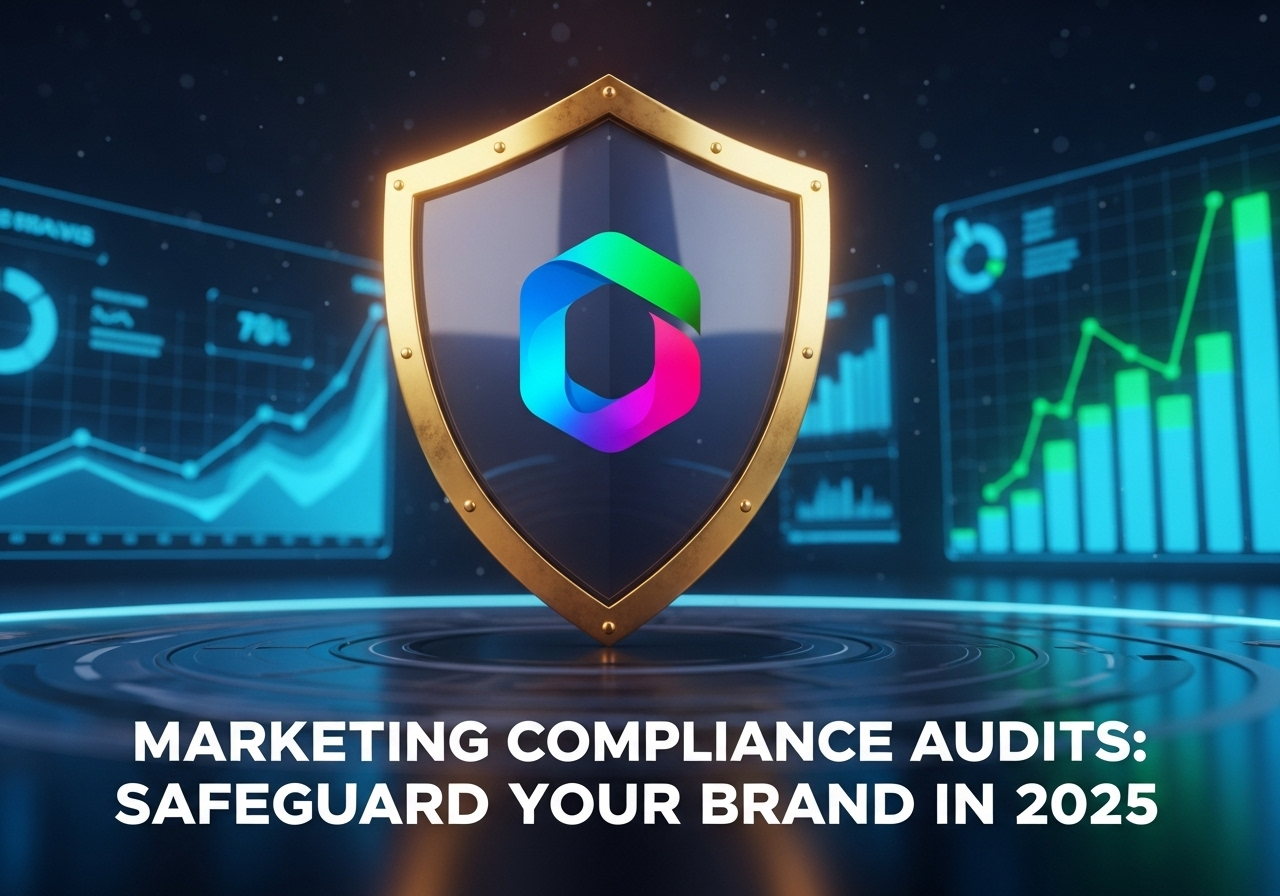The State of Marketing Compliance in 2025
Did you know that 87% of organizations report negative outcomes resulting from low compliance maturity or reactive compliance approaches? In today’s rapidly evolving digital landscape, marketing compliance isn’t just a legal necessity—it’s a competitive advantage that directly impacts your bottom line. As we navigate through 2025, the stakes have never been higher for brands looking to balance aggressive marketing strategies with increasingly complex regulatory requirements.
The marketing compliance landscape has transformed dramatically over the past year. With regulatory bodies strengthening enforcement and consumers becoming more privacy-conscious, organizations face unprecedented challenges in maintaining compliant marketing practices.
Key Trends Shaping Marketing Compliance
Marketing compliance is moving faster than ever in 2025, with several critical trends emerging:
- Resource Constraints: Despite the critical role compliance plays, many organizations still rely on small teams of five or fewer professionals to manage complex compliance responsibilities. This often leads to stretched resources and significant challenges in keeping up with rapidly changing regulations.
- Manual Process Bottlenecks: A staggering 56% of compliance professionals spend at least six hours per week on manual compliance monitoring, with 25% dedicating more than 20 hours weekly to these tasks. These time-consuming, manual methods create bottlenecks and increase the risk of human error.
- Technology Investment Priority: Compliance leaders foresee technology as one of the areas with the highest spending increases this year. Nearly two-thirds (65%) of corporate risk and compliance professionals believe that leveraging technology to automate manual processes can reduce the complexity and cost associated with risk and compliance.
- Channel-Specific Challenges: Social media and email marketing have emerged as the most challenging channels to monitor for compliance, requiring specialized attention and expertise.
Why Marketing Compliance Audits Matter in 2025
A comprehensive marketing compliance audit has become essential for organizations looking to protect their brand while maximizing growth opportunities. Here’s why:
Risk Mitigation and Brand Protection
The financial and reputational costs of non-compliance have skyrocketed. A thorough marketing compliance audit identifies potential regulatory violations before they result in penalties, brand damage, or loss of consumer trust. Consequently, with enforcement actions becoming more frequent and severe, proactive compliance management through regular audits has become a business imperative.
Enhanced Marketing Performance
Contrary to the common misconception that compliance restricts marketing effectiveness, organizations with robust compliance programs often see improved marketing performance. In fact, companies implementing continuous compliance approaches report that their compliance efforts drive business growth, with 76% of those using point-in-time compliance arguing that the related effort poses a burden instead.
Competitive Advantage
In an era where consumer trust is paramount, demonstrating strong compliance practices can differentiate your brand. To illustrate, organizations that prioritize compliance in their marketing efforts build stronger relationships with customers who increasingly value transparency and ethical business practices.
Components of an Effective Marketing Compliance Audit
A comprehensive marketing compliance audit should examine multiple dimensions of your marketing operations:
Channel-Specific Compliance Review
Each marketing channel presents unique compliance challenges:
- Website and Digital Platforms: Review privacy policies, cookie consent mechanisms, accessibility compliance, and promotional claims.
- Email Marketing: Assess opt-in processes, unsubscribe mechanisms, and content compliance with anti-spam regulations.
- Social Media: Evaluate disclosure practices for sponsored content, testimonials, and promotional claims across platforms.
- Paid Advertising: Review claims, disclosures, targeting parameters, and compliance with platform-specific regulations.
Regulatory Framework Assessment
Your audit should evaluate compliance with relevant regulatory frameworks based on your industry and target markets:
- Data privacy regulations (GDPR, CCPA, etc.)
- Industry-specific regulations (financial services, healthcare, etc.)
- Truth in advertising requirements
- Intellectual property considerations
- Accessibility standards
Process and Governance Evaluation
Beyond content and channel-specific compliance, a thorough audit examines:
- Approval workflows for marketing materials
- Documentation and record-keeping practices
- Training programs for marketing teams
- Monitoring and enforcement mechanisms
- Cross-departmental collaboration between marketing and compliance teams
The ROI of Marketing Compliance Audits
Investing in marketing compliance audits delivers measurable returns:
Cost Avoidance
Preventing compliance violations through regular audits helps organizations avoid costly penalties, legal fees, and remediation expenses. With the financial auditing professional services market projected to reach $225.71 billion by 2029, it’s clear that organizations recognize the value of professional compliance oversight.
Operational Efficiency
Identifying and addressing inefficient compliance processes can significantly reduce the time and resources dedicated to compliance activities. As a result, organizations that implement automated compliance solutions report substantial efficiency gains, with 40% of teams now continually reviewing compliance controls with automation.
Revenue Protection and Growth
Non-compliant marketing activities often must be paused or removed, disrupting campaigns and revenue generation. Regular audits ensure marketing initiatives remain compliant from conception to execution, protecting revenue streams. Furthermore, 41% of businesses without continuous compliance report slowdowns in their sales cycle as a result of compliance issues.
Implementing a Marketing Compliance Audit Program
Establishing an effective marketing compliance audit program requires a strategic approach:
- Define Audit Scope and Frequency: Determine which marketing channels, campaigns, and processes will be included. For most organizations, quarterly audits provide a good balance between thoroughness and resource allocation.
- Assemble the Right Team: Effective audits require cross-functional expertise from marketing, legal, IT, and customer experience.
- Develop Comprehensive Audit Checklists: Create detailed checklists for each channel to ensure consistency across audit cycles.
- Leverage Technology Solutions: Invest in compliance management technology to streamline audit processes and enhance accuracy.
- Establish Clear Remediation Processes: Develop structured processes for addressing issues found during audits, including accountability and verification.
- Create Continuous Improvement Mechanisms: Use audit findings to drive ongoing improvements in your marketing compliance program.
Case Study: How Continuous Compliance Drives Marketing Success
A leading financial services company implemented a quarterly marketing compliance audit program in early 2024. After just one year, they saw remarkable results:
- Compliance-related campaign delays decreased by 67%
- Marketing approval cycles shortened by 40%
- The company avoided an estimated $1.2 million in potential regulatory penalties
- Customer trust metrics improved by 22%
Selecting the Right Marketing Compliance Audit Partner
When choosing a marketing compliance audit service provider, consider these critical factors:
- Industry-Specific Expertise: Look for partners with deep experience in your specific industry’s regulatory landscape.
- Technology Capabilities: Evaluate the partner’s tools for assessment, documentation, and tracking of compliance issues.
- Holistic Approach: Seek partners who view compliance as a business enabler, not just a risk management function.
- Actionable Reporting: Ensure deliverables include clear, actionable findings and recommendations for improvement.
Conclusion: Turning Compliance into Competitive Advantage
In 2025’s complex marketing landscape, compliance is no longer just about avoiding penalties—it’s about building trust and creating a sustainable competitive advantage. By investing in comprehensive marketing compliance audit services, you can transform what many view as a burden into a strategic asset that protects and enhances your brand.
Ready to transform your marketing compliance approach? Find out exactly what’s missing in your marketing strategy with our free assessment!



